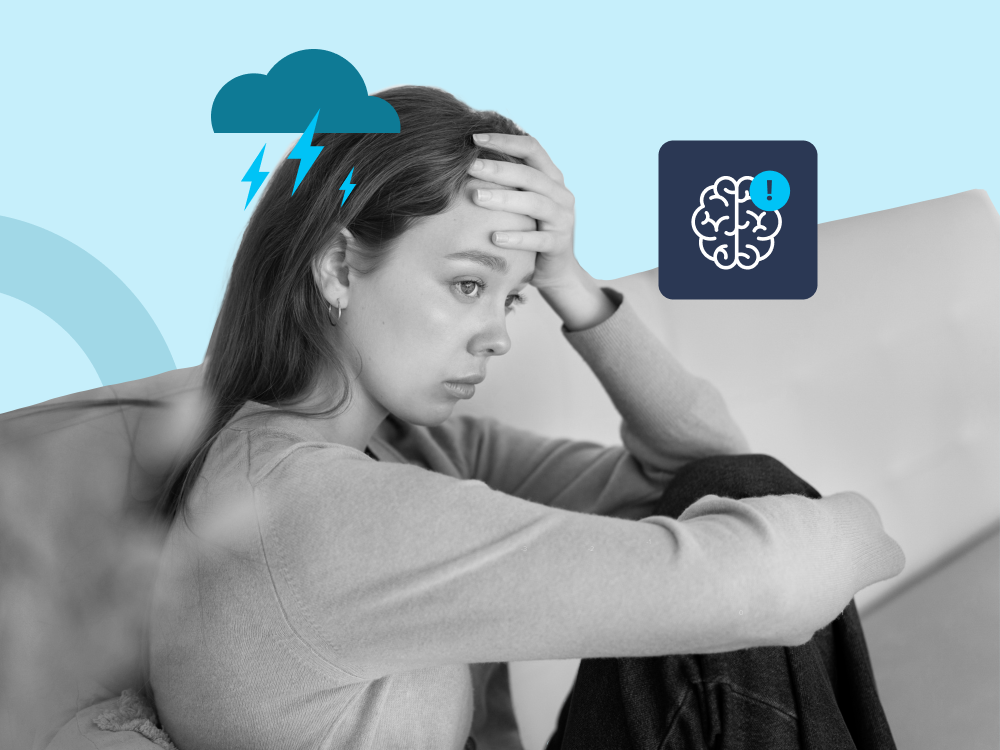
Exploring the Connection Between Anxiety and the Brain
Among mental health concerns in the general population,...
Read more
Spend less time administering assessments and more time helping your patients. Creyos makes it easy to objectively evaluate behavioral health so you can spot mental health issues early, understand what's really going on, and choose the right next steps for your patients. It's fast, digital, scientifically sound, and built for real-world care.
Whether you're a psychiatrist, psychologist, addiction specialist, or other mental health professional, Creyos gives you a full set of mental health assessment tools you can trust, helping you quickly screen for:

Cognitive impairments often goes hand-in-hand with mental health issues, but they're easy to miss without the right tools. Symptoms like poor memory, difficulty focusing, and slower processing speed are common in a variety of mental health conditions.
Creyos combines digital cognitive testing with validated behavioral health questionnaires, giving you a fuller picture of how your patients are really doing.


Cognition screening reveals what a patient might not say and what standard questionnaires alone might not catch.

Track cognitive shifts over time to see if treatment is working or if something new is emerging.

Pair objective cognitive data with behavioral health assessment for more precise, targeted care.
Mental and behavioral health symptoms can be confusing. Patients often show similar symptoms for very different issues. The stakes are too high to rely on subjective evaluation alone. By combining behavioral health questionnaires with clinically validated cognitive tests, Creyos helps you:

Most behavioral and mental health assessment tools are clunky or confusing. Creyos is different. It's simple to use, doesn't waste time, and fits into your daily routine.

Creyos gives you instant access to evidence-based screening tools trusted by clinicians, including digitized neuropsychological tasks and a suite of mental health screeners like:

Cognitive assessment is important in behavioral health because mental health and cognition are closely linked. Conditions like depression, anxiety, and substance use disorders often affect memory, focus, and decision-making. Creyos includes digital cognitive assessments to help providers understand how thinking is affected and how that may influence symptoms and outcomes.
Yes, Creyos is built for primary care, including family physicians, in addition to behavioral health and mental health providers in a variety of settings, including primary care. Our tools are designed to be easily accessible, quick to administer, and useful in time-limited appointments.
Creyos supports clinical decision making by combining mental health screening tools with cognitive testing. Creyos helps providers spot patterns, measure severity, and track change over time. These insights support clinical decision making, improve coordinated care, and help inform a more precise diagnosis.
Creyos supports the assessment of a wide range of mental and behavioral health conditions, including major depressive disorder, anxiety, ADHD, substance use, and more. It also helps detect cognitive impairment, which can be related to or mistaken for mental illness.
Yes, Creyos includes tools that are appropriate for both children and adults, including youth-specific questionnaires like the SWAN (for ADHD). Assessments are short, engaging, and designed to be developmentally appropriate.
Most Creyos assessments take just a few minutes to complete. For example, the PHQ-9 can be done in under two minutes. Cognitive tests typically take 2-3 minutes each. Combined, this provides valuable data without burdening your workflow.
Creyos automatically scores all assessments—both questionnaires and cognitive tasks—immediately after completion. You’ll receive a comprehensive report that includes:

Among mental health concerns in the general population,...
Read more

While depression is often characterized as a mental health...
Read more

Mental health professionals, such as psychiatrists and...
Read more